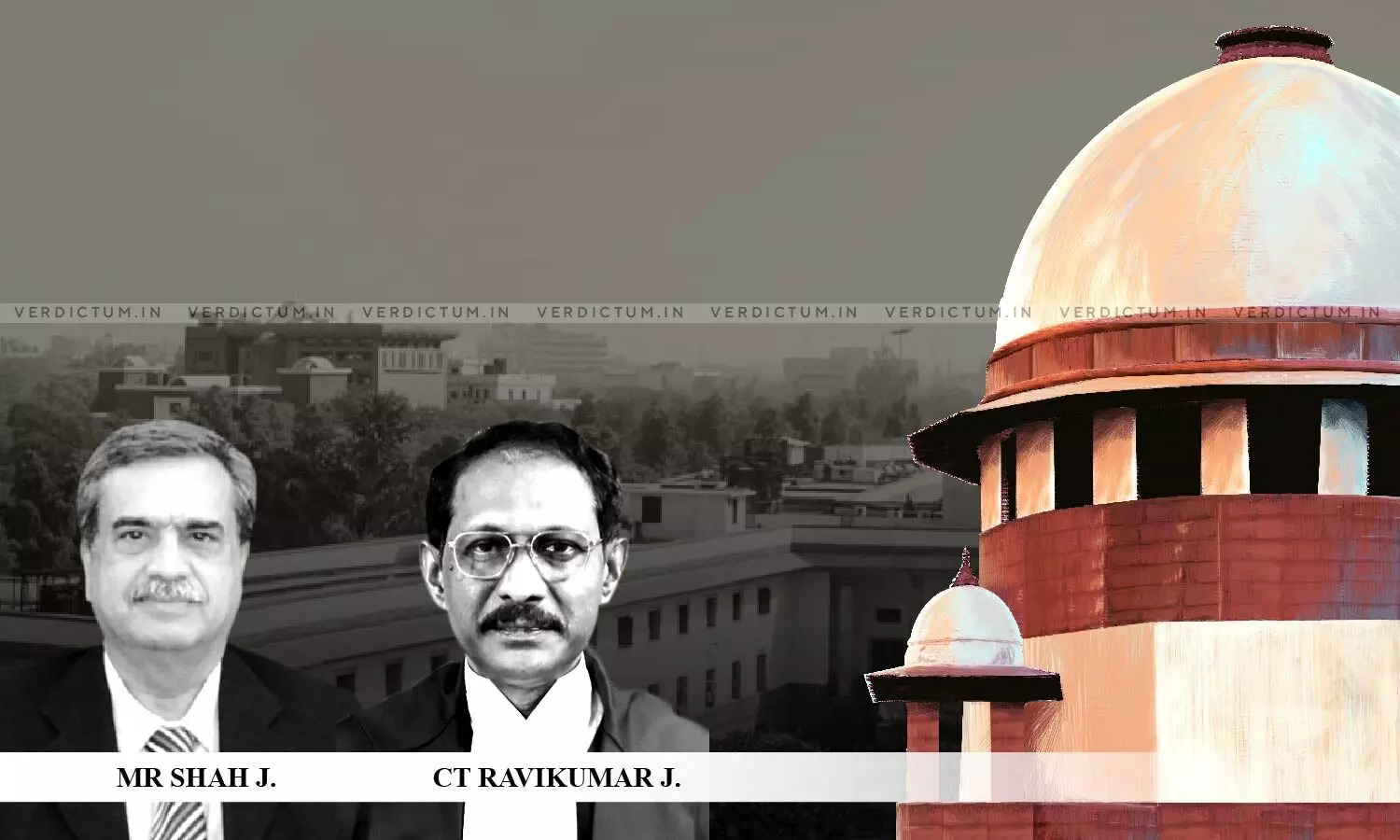
View That There Cannot Be Any Police Custody Beyond 15 Days From Date Of Arrest Requires Re-Consideration- SC
 |
|The Supreme Court has recently observed that in the case of Central Bureau of Investigation v. Anupam J. Kulkarni (1992) 3 SCC 141, the view taken by the Court that there cannot be any police custody beyond 15 days from the date of arrest requires re-consideration.
The two-Judge Bench of Justice M.R. Shah and Justice C.T. Ravikumar noted, “In light of the aforesaid facts and circumstances and the observations made by the learned Special Judge while cancelling the interim bail, the decision of this Court in the case of Anupam J. Kulkarni (supra) is required to be considered. … this Court observed that there cannot be any police custody beyond 15 days from the date of arrest. In our opinion, the view taken by this Court in the case of Anupam J. Kulkarni (supra) requires re-consideration.”
The Bench in a matter asserted that the CBI (Central Bureau of Investigation) could not interrogate the accused for the full seven days under the police custody remand, which otherwise the CBI was entitled to.
Solicitor General Tushar Mehta and ASG Aishwarya Bhati appeared for the CBI/appellant while Senior Advocate Neeraj Kishan Kaul appeared for the accused/respondent.
In this case, the CBI i.e., the appellant preferred an appeal against the judgment passed by the Calcutta High Court as its Division Bench directed to release the accused i.e., the respondent on statutory/default bail under Section 167(2) of the Cr.PC. An FIR was registered against the accused for the offences under Sections 120-B/409 of the IPC and the relevant provisions of the Prevention of Corruption Act.
The accused was arrested and remanded to CBI custody for a period of seven days but during the said period, he was admitted to the hospital and thus could not be interrogated by the CBI despite the police custody remand. The High Court allowed his plea and directed him to be released as even within 90 days from the date of arrest, the chargesheet was not filed which came to be filed later.
The Supreme Court in view of the above facts observed, “… the facts in the present case are very glaring. … the respondent-accused has successfully avoided the full operation of the order of police custody granted by the learned Special Judge. No accused can be permitted to play with the investigation and/or the court’s process. No accused can be permitted to frustrate the judicial process by his conduct.”
The Court said that the right of custodial interrogation/investigation is also a very important right in favour of the investigating agency to unearth the truth, which the accused has purposely and successfully tried to frustrate.
“… by not permitting the CBI to have the police custody interrogation for the remainder period of seven days, it will be giving a premium to an accused who has been successful in frustrating the judicial process. … the pendency of the special leave petitions at the behest of the co-accused has nothing to do with the present proceedings”, held the Court.
The Court, therefore, permitted the CBI to have the police custody remand of the accused for a period of four days.
Accordingly, the Apex Court allowed the appeal.
Cause Title- Central Bureau of Investigation v. Vikas Mishra @ Vikash Mishra